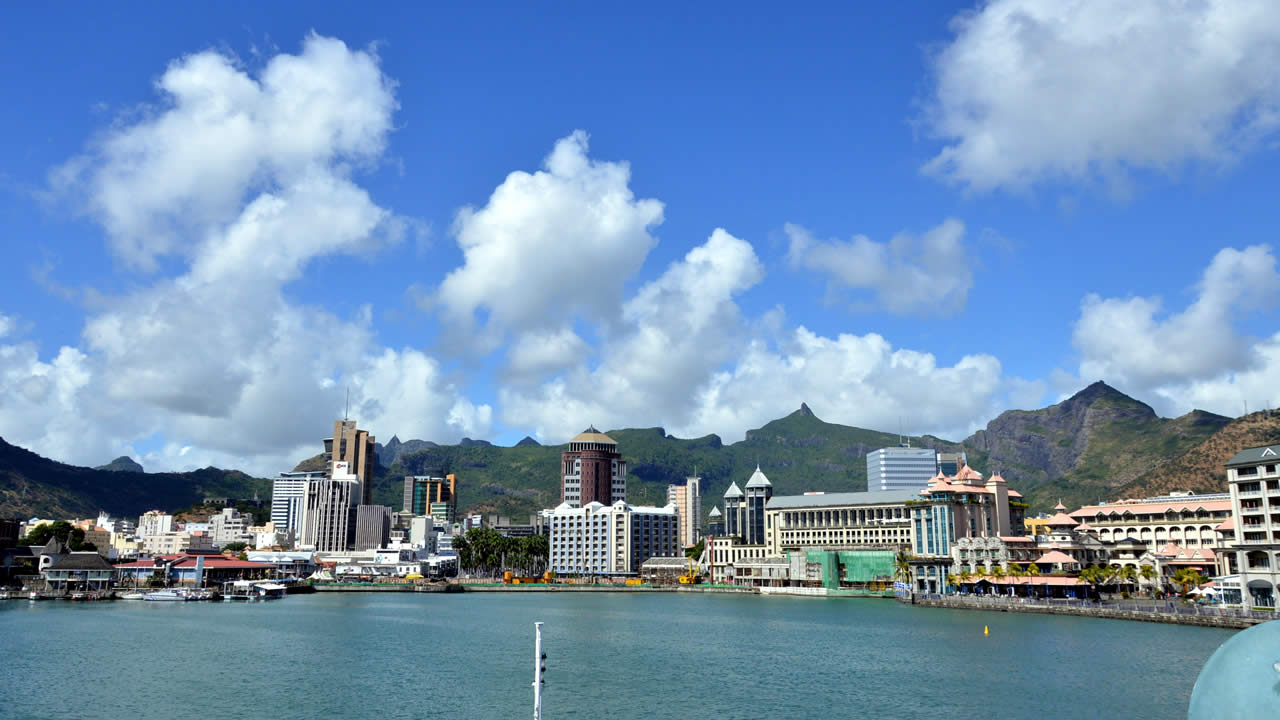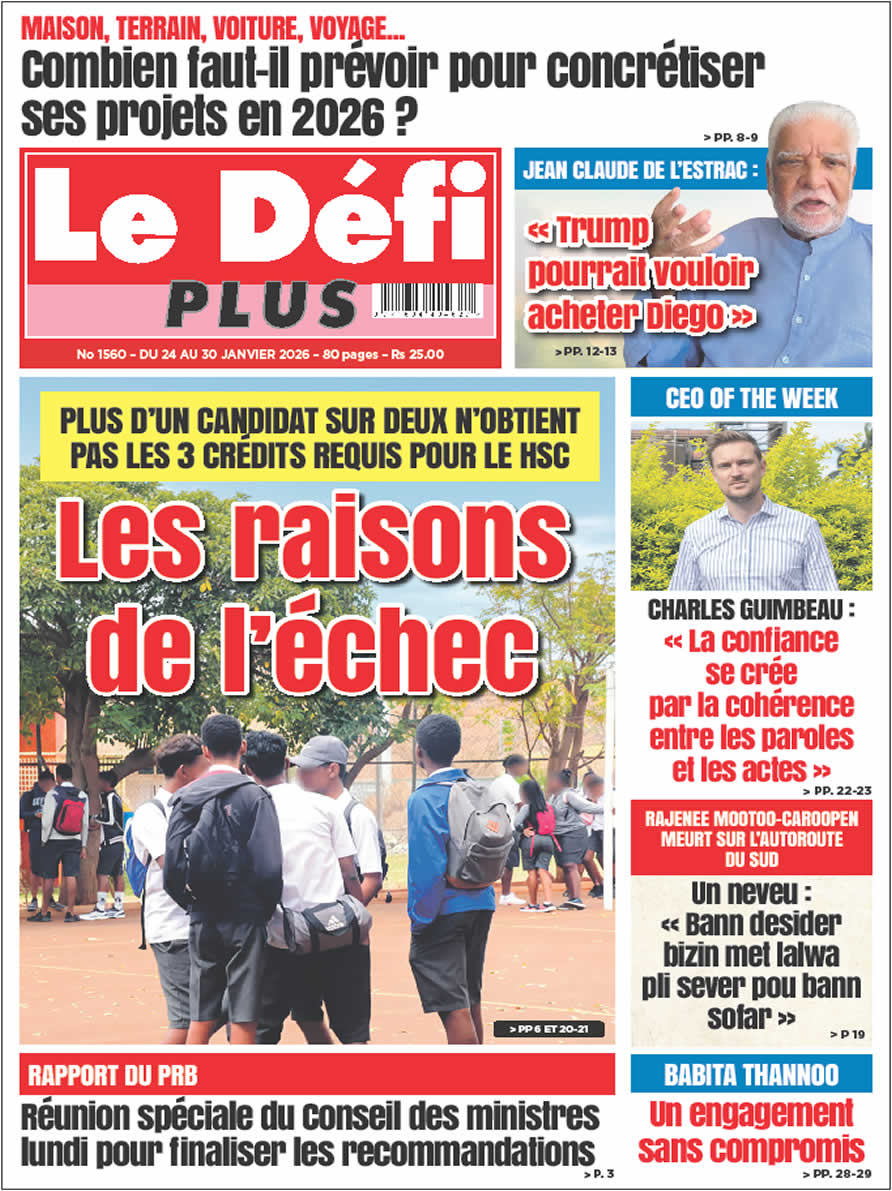
Il ne faut pas minimiser la probabilité que Maurice soit, un jour, classée comme une juridiction à haut risque, d’autant que ses relations économiques avec l’Afrique ne sont pas au beau fixe.
1. Selon vous, nos relations diplomatiques avec l'Afrique au plan économique sont...
| Au beau fixe | 10% |
| Tièdes | 40% |
| Négligées | 50% |
L’Afrique pas si proche
Neuf sondés sur dix estiment que les relations économiques de Maurice avec l'Afrique ne sont pas au beau fixe. Car « there is a perception in African countries that the Mauritius financial centre is depriving them of significant tax monies ». D’ailleurs, « Mauritius has yet to establish itself as an appropriately competitive regional hub for businesses and investors wishing to deal with African countries ». Pour cela, « there is a cultural barrier that has to be overcome first in order to understand what drives African economic operators ». Certes, « several memorandums of understanding have signed, but there is no concrete realisation in terms of investment both inward and outward ». Si « we have good relationships with Kenya, Ghana and South Africa », il demeure que « we have had no focus over the last few years, but lots of loose talks ».
2. Quel est le niveau de risque que les dons de l'Inde et de la Chine influencent la politique étrangère de Maurice ?
| Elevé | 27% |
| Assez Fort | 63% |
| Faible | 10% |
Maurice sous influence étrangère
Maurice devient de plus en plus dépendante de dons de l'Inde et de la Chine pour son budget de développement. En effet, souligne un analyste, « without these grants, our fiscal deficit would shoot up to 5 per cent of GDP. The two countries know this. » Ainsi, neuf répondants sur dix craignent que ces dons pèsent sur notre politique étrangère. Jusqu'ici « there is a balancing act done by the Mauritian diplomacy playing one against the other », mais « à un moment donné, il y aura un retour d’ascenseur... » On pense même que « the political game with India and China has already made it that we have lost our sovereignty ».
3. Pensez-vous que Maurice pourra être classée par la communauté internationale comme une « High-Risk Jurisdiction » dans un proche avenir ?

L’offshore mauricien dans la balance
Les analystes sont divisés quant à l'éventualité que Maurice soit catégorisée comme une juridiction à haut risque. Pour les optimistes, « there is no ground to do so as Mauritius is largely compliant and is conducting further changes to adhere to OECD and EU requirements ». De plus, « the Mauritian authorities have consistently demonstrated their determination to preserve the image of the jurisdiction through the adoption of measures to enhance substance. This approach should help guard against adverse ratings. » Pour les pessimistes, « we are not managing this risk well » pendant que « the United Kingdom, the United States, Hong Kong and Switzerland are vying for offshore money, with a strategy to scare off clients from small global business centres by giving information to create a climate of anti-tax avoidance ».
4. Comment évaluez-vous la performance du ministre des services financiers, Sudhir Sesungkur, jusqu’ici ?

Un ministre de mauvaise gouvernance
Trois quarts des sondés jugent mauvaise la performance du ministre Sudhir Sesungkur. Pour être juste, les affaires Britam, Sobrinho et Bastos ont commencé sous son prédécesseur. Reste que « he is certainly not a minister of good governance ». De même, « there is no notable progress in the financial services sector since he is minister. His personal issues are certainly a major weakness. » Certains le trouvent « not fit for the portfolio », soit « a minister who does not understand an iota of what is happening in the sector, a minister who is not in touch with the stakeholders ». C’est pourquoi « it would be best to appoint another person in his stead », et aussi « place competent people at the Financial Services Commission and reinforce its scope ».
5. Quelle image renvoie actuellement la direction de la Banque de Maurice ?

Les hommes font l’institution
Le gouverneur de la Banque de Maurice et ses deux adjoints ne montrent pas l’image d’une équipe compétente, déplorent 83% des sondés. La direction de la banque centrale est minée par des conflits ou par l’indécision. Ainsi, « recent messages conveyed notably in the press have done no good to the credibility of the institution. Moreover, it is highly important for the central bank to affirm its independence in view of perceptions that key officials may be too closely involved with the government. » C’est pourquoi « there should be a proper selection panel with proper interviews and parliamentary sub-committee questions to select ». En attendant, « not enough is being done to lay grounds for a robust and well functioning interbank market ».
6. D’après vous, l’action de la State Bank of Mauritius Holding sera d’ici à la fin de décembre 2018...
| En dessous de Rs 7 | 20% |
| Entre Rs 7 et Rs 8 | 77% |
| Au-dessus de Rs 8 | 3% |
La SBM sous la pression de scandales
L’action de la State Bank of Mauritius Holding (SBMH) ouvrait la semaine dernière à Rs 7,42. Avant que ne soit rendue publique que « the Bank has initiated an internal inquiry into a suspected fraud in respect of net facilities of USD 27 million granted to a segment B client », 80% des répondants ne croyaient pas que l'action de SBMH allait descendre sous les Rs 7. Mais vendredi dernier, elle chuta à Rs 6,50 avant de clôturer à Rs 6,98. Selon un analyste,
« one more scandal and the share will be worth less than Rs 6 ». Quoi qu’il en soit, « it is not good corporate governance practice to have political nominees as directors of SBM Group ».
7. Quel type de placement local vous semble le plus favorable en ce moment ?
| Actions boursières locales | 13% |
| Obligations publiques | 17% |
| Obligations d’entreprise | 17% |
| Dépôts bancaires en roupies | 3% |
| Devises étrangères | 17% |
| Marché immobilier | 23% |
| Fonds d’investissement collectifs | 10% |
La sécurité plutôt que la volatilité
S’ils avaient Rs 10 millions en main, la majorité des analystes les placeraient dans des actifs au rendement sûr, comme l’immobilier et les obligations. C’est que « real estate is quick cash with heavy speculation », et que « treasury yields have increased significantly since end December 2017, and they have negligible risk ». Les devises étrangères et les actions boursières sont aussi attrayantes, mais elles sont assez volatiles. Malgré « the risk entailed by foreign currency transactions », d’aucuns considèrent que « lobby for a weak rupee is very strong, and there will be more pressure », sachant que « as the rupee depreciates, any foreign currency deposit appreciates by an equivalent percentage ».
8. Quelle orientation du Repo Rate prévoyez-vous à la prochaine réunion du comité monétaire ?

Un taux de référence inutile
Le comité de politique monétaire se réunira lundi prochain. Aucun analyste ne s’attend à une détente monétaire. Car « the repo rate has gone too low, and another reduction will project a perception of weak economic fundamentals ». Pour un économiste, « considering the downtrend in inflation registered lately, the challenging economic environment and the downside risks characterising the country’s economic growth pattern, the repo rate is likely to remain unchanged even though short term securities have been subject to a generally recent marked uptrend recently. In fact, it would seem that the authorities are seeking to engineer a rise in savings rate by commercial banks without any change in the reference rate. »
Enquête d’opinion réalisée par PluriConseil du 6 au 9 août 2018 auprès d’un échantillon représentatif de 30 analystes économiques et financiers.








